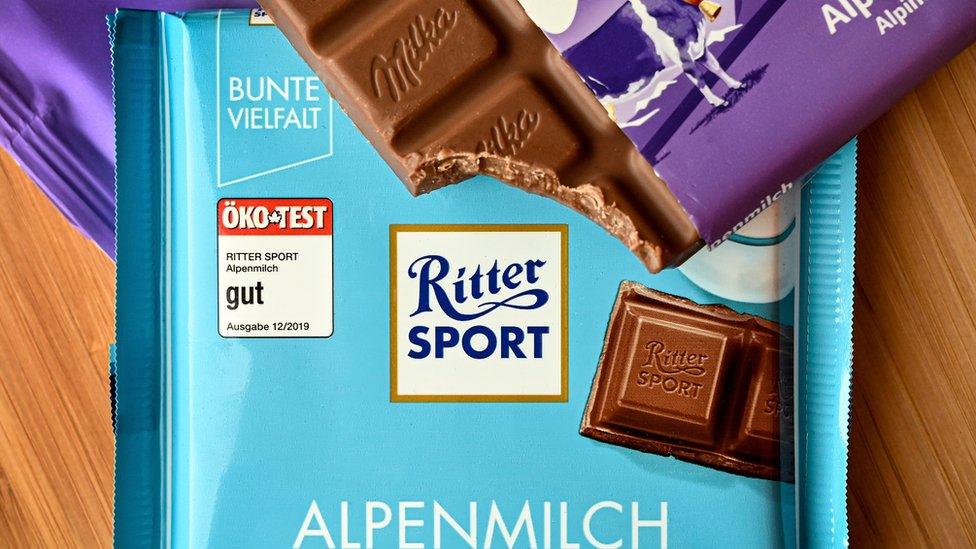Germany's Ritter Sport wins square chocolate battle against Milka
- Published

For decades, Ritter Sport has marketed its chocolate bars on their unique, square shape.
So when rival brand Milka challenged its German monopoly on square chocolate, the battle lines were drawn.
Milka achieved an initial victory in 2016 by getting the trademark deleted but that ruling was overturned.
Finally, the case ended up in the Federal Court of Justice, where judges have now thrown out Milka's complaint and ruled in favour of Ritter Sport.
First, the history
The square bar dates back to 1932, when Clara Ritter came up with the idea, . "Let's make a chocolate bar that fits in everyone's jacket pocket without breaking and weighs the same as a normal long bar," she is supposed to have said (although in German).
By 1970 it had come up with the slogan "Quadratisch, praktisch, gut" - quality, chocolate, squared, as the company likes to translate it.
The family company registered the shape with the German patent and trademark office in 1993, so when Milka began marketing a square bar in 2010, the case went to court.
The judges said the square shape gave customers an indication of both its origin and quality
Milka, now owned by Mondelez, won round one in the federal patent court but that ruling was later thrown out and the patent court decided the following year that Ritter could keep its three-dimensional monopoly.
Milka's final challenge in the Federal Court of Justice has now also failed.
What the judges said
Normally a brand cannot claim protection in Germany if its shape gives the product "an essential value". But the judges in this case said Ritter Sport was different.
Consumers considered the square nature of the chocolate bar as an indication of both where the chocolate came from and its quality, they concluded.
They said there was no artistic value to the shape and it did not lead to differences in price.
Their ruling means that the incumbent bar can remain the only top-brand square chocolate bar on the shelves in German shops.
- Published25 July 2018